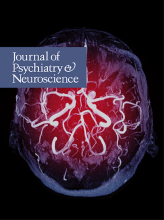A 39-year-old accountant and married mother of 2 children has received pharmacotherapy and mindfulness-based psychotherapy during the last 6 months to mitigate depressive symptoms as part of recurrent major depressive disorder (MDD), which began during her college years. Her PHQ-9 score is 4. She has reported inability to organize her thoughts, “fuzzy thinking” and poor memory. She has also expressed disquiet at the disconnect between her current functioning, despite remission of symptoms, and her functioning before the onset of the index episode. She continues to have difficulty working and has had to reduce to part-time capacity. Pertinent medical history includes a body mass index (BMI) of 32.6 and type II diabetes (T2DM).
Empirical evidence has documented that both MDD and T2DM are associated with significant cognitive dysfunction. For example, individuals with either condition exhibit persisting and pervasive deficits in objective measures of executive function, information-processing speed, learning and memory, and attention/concentration. A proposed taxonomy for cognitive dysfunction is “cold” cognition (i.e., nonemotionally valenced) and “hot” cognition (i.e., emotionally valenced). Hot cognition is represented by attentional biases, catastrophic response to negative feedback and negative ruminative thinking, which are often observed in depressed adults.1–3
Moreover, both conditions are highly associated with decreased performance on subjective measures of cognitive dysfunction as well as an increased hazard for incident dementia (e.g., Alzheimer disease, vascular dementia). The pertinence of cognitive dysfunction in individuals with MDD, and perhaps also T2DM, is the observation that patient functional outcomes and self-reported measures of quality of life, in many individuals, is mediated primarily by cognitive dysfunction rather than disturbances in mood and/or other dimensions of depression.
The management of MDD in patients with T2DM is best supported by integrated, accountable, longitudinal practice units, which have broad application across chronic diseases.4 As part of an integrated and accountable approach, achieving remission of depressive symptoms and normalization of metabolic parameters is a primary objective. For persisting cognitive dysfunction in patients with MDD (regardless of whether they have T2DM) it is imperative to directly address other potential contributing psychiatric and/or medical comorbidities. For example, concurrent anxiety disorder, attention-deficit/hyperactivity disorder and/or substance use disorder contribute to cognitive dysfunction in many adults with MDD. Abnormalities in thyroid function would also need to be addressed.
Conventional antidepressants (e.g., selective serotonin reuptake inhibitors [SSRIs] have not been sufficiently studied in adequately powered randomized, placebo-controlled trials to determine whether they independently benefit cognition in younger adults with MDD. A single placebo-controlled trial in elderly patients with MDD provided evidence that duloxetine improves cognitive dysfunction (i.e., learning and memory).5 In older adults (≥ 65 yr) with MDD, vortioxetine exerts a beneficial effect across disparate measures of cognition (i.e., information-processing speed, attention, learning and memory).6 Several studies are attempting to determine whether antidepressants are capable of reliably improving cognitive dysfunction with clinical relevance in younger individuals with MDD, independent of the effect on overall symptom severity.
Preliminary evidence supports the efficacy of some stimulants for improving executive function when added to SSRIs on measures of executive function in patients with MDD.7 However, the benefit of most psycho-stimulants on cognition in patients with MDD has not been empirically established. Preliminary evidence also supports modafinil as possibly benefiting some measures of cognition in adults with MDD. Aerobic exercise, with a particular emphasis on cognition, has yielded mixed results largely owing to heterogeneity and design, sample composition, intervention and measurement, but preliminary evidence suggests a beneficial effect on cognition in adults with MDD. It has to be emphasized, however, that there is no intervention that is approved by either Health Canada or the U.S. Food and Drug Administration for mitigating cognitive function in patients with MDD, nor is there an empirical basis supporting any particular treatment as the preferred option for this commonly encountered difficulty. The recently introduced Research Domain Criteria by the National Institute of Mental Health has given significant priority to different facets of cognition; it is hoped that such effort will eventually provide for patients a genuinely novel and clinically relevant treatment approach.
Footnotes
The information in this column is not intended as a definitive treatment strategy but as a suggested approach for clinicians treating patients with similar histories. Individual cases may vary and should be evaluated carefully before treatment is provided. The patient described in this column is a composite with characteristics of several real patients.
Competing interests: None declared.






